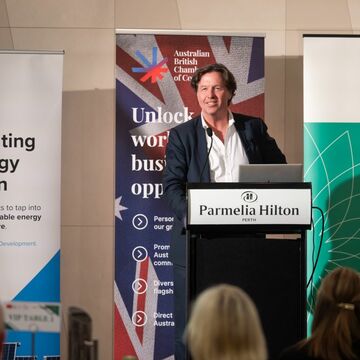An attempt by green iron technology developer Element Zero, its chief technology Dr Bartlomiej Kolodziejczyk and its chief executive officer Michael Masterman to appeal a decision to not set aside search orders that netted a host of information Fortescue Future Industries sought for its intellectual property case against EZ has failed.
It also means the Element Zero parties have to pay Fortescue's costs of the application for leave to appeal and that Fortescue can retain a trove of information for its case against them.
On May 14 2024 Federal Court justice Melissa Perry made search orders against Element Zero, Kolodziejczyk, Masterman and EZ's Dr Bjorn Winther-Jensen.

YOU MIGHT ALSO LIKE
The three had had all been employees of Fortescue before leaving and forming Element Zero to develop green iron technology.
Fortescue sought the search orders in the hope of finding materials that would back its case that the EZ parties had infringed its green iron intellectual property.

The search was executed, hard copy material was seized and devices were imaged.
On October 4 Federal Court justice Brigitte Markovic dismissed an application by Element Zero, Kolodziejczyk and Masterman to set aside the search orders.
Their case for setting aside the search orders was said to be the material non-disclosure of three categories of facts by Fortescue on the ex parte application.
Markovic found that in respect to one of the categories of facts there was a material non-disclosure in breach of Fortescue's obligation of candour on the ex parte application. Despite that, she exercised discretion, which she held that she had, to not set aside the search orders and ordered the EZ parties to pay the costs of the application to set aside the search orders.
That led to the appeal.
Winther-Jensen decided not to join the appeal.
The appeal was made on four grounds: that the primary judge erred in failing to set aside the search orders after finding there was a material non-disclosure by Fortescue on the ex parte application; whether the primary judge ought to have found material non-disclosure in relation to one of the other matters advanced before her; that, assuming the first ground fails, asserting Markovic incorrectly exercised the discretion; and that the cost order made in Fortescue's favour be overturned.
Justice Angus Stewart found there was little doubt in the correctness of Markovic's decision and that there was no substantial injustice if, assuming the decision to be wrong, if leave to appeal was not granted.























